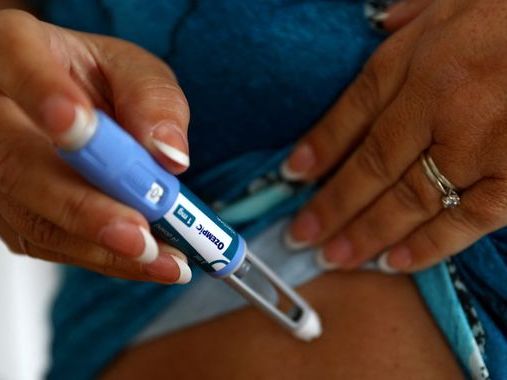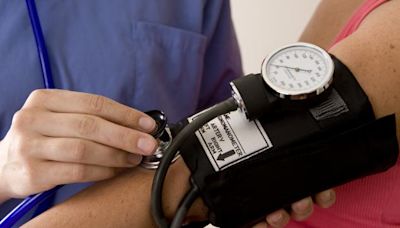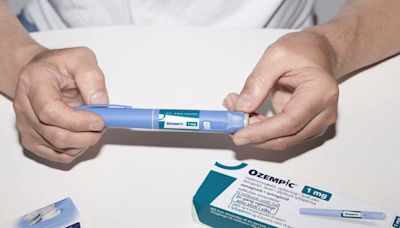Search results
Mar 27, 2024 · Diabetes mellitus refers to a group of diseases that affect how the body uses blood sugar (glucose). Glucose is an important source of energy for the cells that make up the muscles and tissues. It's also the brain's main source of fuel. The main cause of diabetes varies by type.
Feb 17, 2023 · If your pancreas isn’t making enough insulin or your body isn’t using it properly, glucose builds up in your bloodstream, causing high blood sugar (hyperglycemia). Over time, having consistently high blood glucose can cause health problems, such as heart disease, nerve damage and eye issues.
Apr 5, 2023 · Key facts. The number of people with diabetes rose from 108 million in 1980 to 422 million in 2014. Prevalence has been rising more rapidly in low- and middle-income countries than in high-income countries. Diabetes is a major cause of blindness, kidney failure, heart attacks, stroke and lower limb amputation.
Jan 30, 2023 · Find out everything you need to know about diabetes here, including types, symptoms, causes, and risk factors. Learn about how it’s diagnosed, whether it can be prevented, its effects, and more.
Diabetes is a disease that occurs when your blood glucose, also called blood sugar, is too high. Glucose is your body’s main source of energy. Your body can make glucose, but glucose also comes from the food you eat. Insulin is a hormone made by the pancreas that helps glucose get into your cells to be used for energy.
Nov 8, 2023 · Type 2 diabetes (T2D) is a chronic condition that happens when you have persistently high blood sugar levels (hyperglycemia). Healthy blood sugar (glucose) levels are 70 to 99 milligrams per deciliter (mg/dL). If you have undiagnosed Type 2 diabetes, your levels are typically 126 mg/dL or higher.
Diabetes mellitus, often known simply as diabetes, is a group of common endocrine diseases characterized by sustained high blood sugar levels. Diabetes is due to either the pancreas not producing enough insulin, or the cells of the body becoming unresponsive to the hormone's effects.
Mar 14, 2023 · High blood sugar levels are the main problem in diabetes. Learn about lifestyle changes to lower the risk and treatments to manage type 2 diabetes.
Mar 27, 2024 · A reading of more than 200 mg/dL (11.1 mmol/L) after two hours means you have diabetes. A reading between 140 and 199 mg/dL (7.8 mmol/L and 11.0 mmol/L) means you have prediabetes. If your provider thinks you may have type 1 diabetes, they may test your urine to look for the presence of ketones.
Diabetes is a chronic, metabolic disease characterized by elevated levels of blood glucose (or blood sugar), which leads over time to serious damage to the heart, blood vessels, eyes, kidneys and nerves.



